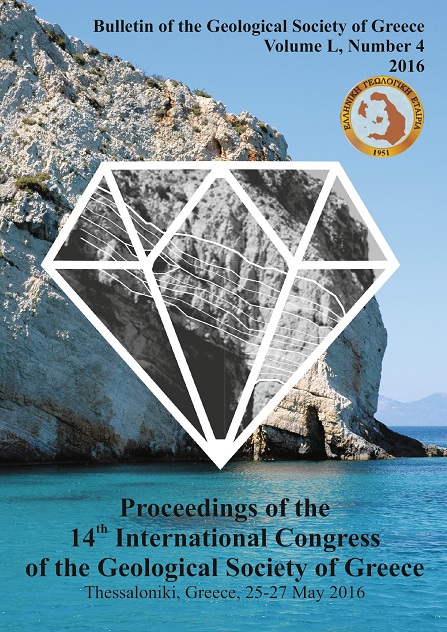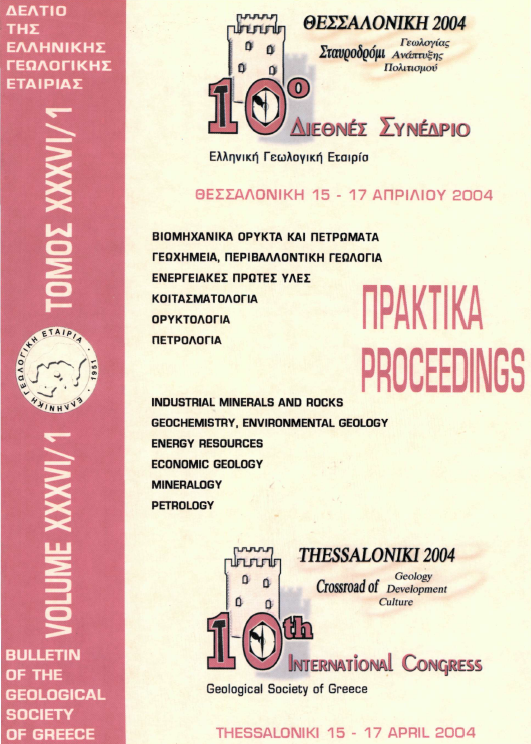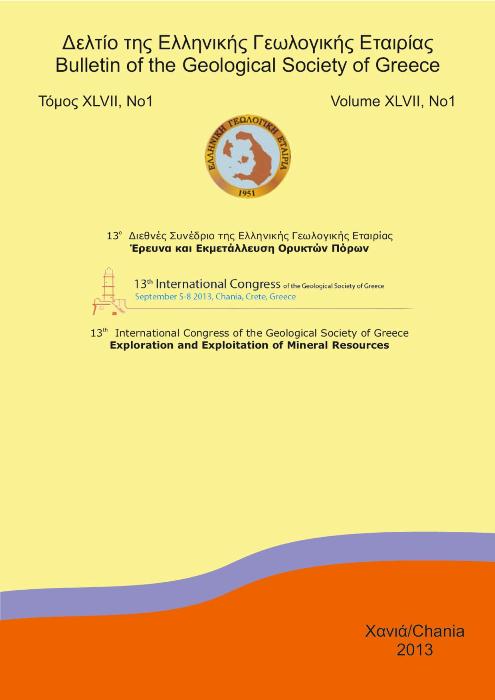ASSESSMENT OF SELECTED METALS ENRICHMENT IN SEDIMENTS FROM PALEA KAVALA RIVER, NE MACEDONIA, NORTHERN GREECE

Abstract
In surface aquatic systems, trace elements and especially heavy metals accumulate in sediments. Thus, the determination of sediment chemical characteristics is critical in the assessment of an aquatic environment’s quality. Thirteen sediment samples from Palea Kavala river (NE Macedonia, Greece) were studied for their content in Al, Fe, Cu, Cd, Mn, Pb, Zn. In order to evaluate the metal enrichment for environmental purposes, two geochemical indices were employed: Enrichment Factor (EF) and Geoaccumulation Index (Igeo). According to the results, Al was the most abundant major element in sediments with Fe and Mn to follow. Trace element content followed the order Pb>Zn>Cu>Cd. EF values revealed that samples are enriched in Cd and Pb, while Igeo values also suggested that there is considerable contamination concerning Cd and Pb. It is concluded that ore mineralizations which occur in Palea Kavala region contribute to the elevated concentrations of all the studied elements, since they comprise mainly Fe-Mn metal assemblages including minerals such as pyrite, goethite, chalcopyrite, galena, sphalerite and pyrolousite.
Article Details
- How to Cite
-
Giouri, K., Vavelidis, M., Melfos, V., & Papadopoulou, L. (2016). ASSESSMENT OF SELECTED METALS ENRICHMENT IN SEDIMENTS FROM PALEA KAVALA RIVER, NE MACEDONIA, NORTHERN GREECE. Bulletin of the Geological Society of Greece, 50(4), 2137–2144. https://doi.org/10.12681/bgsg.14266
- Section
- Special Session: Enviromental Geochemistry

This work is licensed under a Creative Commons Attribution-NonCommercial 4.0 International License.
Authors who publish with this journal agree to the following terms:
Authors retain copyright and grant the journal right of first publication with the work simultaneously licensed under a Creative Commons Attribution Non-Commercial License that allows others to share the work with an acknowledgement of the work's authorship and initial publication in this journal.
Authors are able to enter into separate, additional contractual arrangements for the non-exclusive distribution of the journal's published version of the work (e.g. post it to an institutional repository or publish it in a book), with an acknowledgement of its initial publication in this journal. Authors are permitted and encouraged to post their work online (preferably in institutional repositories or on their website) prior to and during the submission process, as it can lead to productive exchanges, as well as earlier and greater citation of published work.





